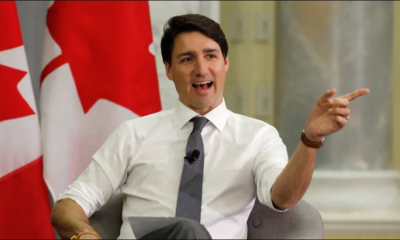World
Obama to attend Shimon Peres funeral in Jerusalem
 Washington : US President Barack Obama will attend the funeral in Jerusalem of former Israeli President Shimon Peres, who died earlier on Wednesday, the White House confirmed.
Washington : US President Barack Obama will attend the funeral in Jerusalem of former Israeli President Shimon Peres, who died earlier on Wednesday, the White House confirmed.
Obama “will lead the US delegation to Jerusalem to participate in the funeral of former Israeli President Shimon Peres,” EFE news quoted the White House Press Secretary Josh Earnest as saying in a statement.
The President will depart for Israel on Thursday and will return to Washington on Friday after the ceremony, the announcement added.
On Wednesday morning, Earnest had said that Obama would like to attend the state funeral to be held on Friday in Israel and the logistics were being worked out to allow him to do so, providing his remarks to reporters aboard Air Force One taking the President to Richmond, Virginia.
Peres, 93, died early Wednesday morning from complications of a stroke and was one of the great international statesmen of the 1990s, working — among other things — to promote peace in the Middle East.
The Israeli Foreign Ministry announced that about 20 heads of state and government have said they intend to attend the funeral, including French leader François Hollande and Mexican President Enrique Peña Nieto.
World
Lockdowns in China Force Urban Communities to Defy Censorship and Vent Frustration Online

Shanghai’s rich middle class is leading a wave of online dissent over the strict and prolonged lockdowns imposed in various parts of the country. Chinese internet censorship is struggling as patience is wearing thin in many urban centers, coming up with creative forms of online protests.
Social Media Posts Revealing Lockdown Tension in Shanghai
Drawn-out lockdowns are nothing new in China as authorities insist with the nation’s zero-Covid policy since the start of the pandemic. Currently over This time around, however, metropolitan areas like Shanghai are increasingly difficult to keep quiet, given that its more than 25 million residents have seen weeks of total isolation along with food shortages and many other service interruptions.
Dozens of towns and reportedly over 300 million Chinese citizens have been affected by lockdowns of different severity. As expected, urban netizens have been most outspoken over their difficulties by finding creative ways to get around state censorship and bans placed on topics, news comments and spontaneous campaigns.
Shanghai residents have been using mobile proxies and hijacking seemingly unrelated hashtags to talk about healthcare issues, delivery failures and the overall severity of their situation. The “positive energy” that the Chinese government wants to transmit during the recent prolonged series of lockdowns does not come naturally to those counting food supplies and online censors are working hard to filter words, trending topics and undesired social media sharing.
WeChat groups and message threads are under constant monitoring. Posts questioning the zero-Covid approach have been quickly deleted, including by leading Chinese health experts like Dr. Zhong Nanshan. Video footage is soon censored and protests and investigations are quickly made to disappear.
Where this has not worked, officials have exposed banners with warnings and outright threats like “watch your own mouth or face punishment”, while drones have been patrolling the city skies. Yet, if anything, this has led to further tensions and unspoken confrontation with Shanghai’s educated and affluent middle class.
Creative Online Solutions Harnessing Civic Energy
Announcements by Chinese social media that they would be publishing the IP addresses of users who “spread rumors” have not helped either. Tech industry research has shown that much of Asia’s tech-savvy population has a habit of using mobile proxies and other privacy tools, quickly finding workarounds to browse the internet freely and talk to the world about the hottest topics.
The sheer volume of forbidden posts is already a challenge for the very censorship system, experts explain. Unable to track all trending hashtags, state workers overlook topics that speak about the US, Ukraine or other popular news. Linking human rights elsewhere to their situation, Chinese online dissidents establish their informal channels and “hijack” the conversation to share personal or publicly relevant information about the Covid suppression in their town.
Sarcastic and satirical posts still dominate. Others hope to evade the censors by replacing words from famous poems or the national anthem. One thing is certain – social media, when harnessed with the right creativity, has proven its ability to mount pressure on the government in even some of the most strictly controlled tech environments like China.























